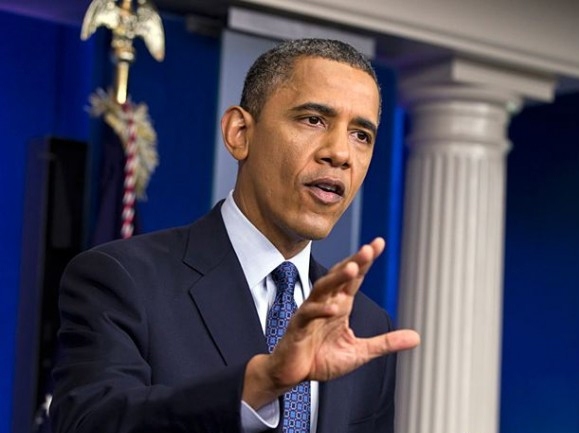“The notion that my White House would purposely release classified national security information is offensive,” President Barack Obama said at a press conference Friday in reference to two New York Times stories.
The first dealt with White House “Kill Lists,” while the second concerned America’s creation of the “stuxnet” virus that helped disable an Iranian nuclear plant from enriching uranium — in which sensitive national security information was leaked in what Republicans have said were “some of the most serious breaches of national security in recent memory.”
Dean Baquet, the Managing Editor of the New York Times, told Politico “I can’t believe anybody who says these are leaks … Read those stories. They are so clearly the product of tons and tons of reporting.”
Attorney General Eric Holder, unlike in the “Fast and the Furious” case, was pressured to assign two lawyers from the Department of Justice to investigate the matter.
But closer examinations of the stories in question — and the White House’s actions — point to the White House as the very source of these leaks. And, as White House critics have asserted, the Obama administration may have leaked the information to boost Obama’s image as a strong leader, playing up the national security card to give him cover for America’s slumping economy.
In the New York Times story in question on Obama’s “Kill List” and drone strikes, every source in that story is affiliated with the Obama administration.
And in the New York Times article that revealed the United States co-authored the Stuxnet virus, the story reveals intimate details from meetings in the White House’s Situation Room and paints Obama as the central figure who ultimately decided to continue to the program (the implication is Obama made a critical decision that led to a successful intelligence outcome), which succeeded, after the virus became public in 2010 and administration officials were deciding whether the program was worth continuing.
Compare the White House’s lack of an immediate response to leaks favorable to them to their aggressive response to leaked information that detailed a failed intelligence mission in Iran.
New York Times reporter James Risen was swiftly subpoenaed in 2011 to disclose his source for information he published in a 2006 book “about the CIA’s attempt to use a Russian scientist to feed Iran faulty blueprints for a nuclear trigger device,” an operation he characterized in the book as unsuccessful. In 2010, former CIA official Jeffery Sterling, who is alleged to have been Risen’s source, was indicted on ten felony charges relating to his alleged role in leaking classified information.
John Cook, a senior reporter at Gawker, wrote about the White House’s starkly different responses to similar leaks. Cook wrote that many national security observers noted the “stuxnet” story could not have been written without White House support, and senior national security officials were aware “that the Times was on the verge of releasing highly classified details about a CIA operation.”
Cook wrote that this operation was “one that happened to have been effective, and the execution of which reflected well on Obama. And neither the White House nor the CIA formally did anything to try and stop it. Imagine that.”
In some situations, there isn’t much that is left for the imagination, and this may be one of those cases.

COMMENTS
Please let us know if you're having issues with commenting.